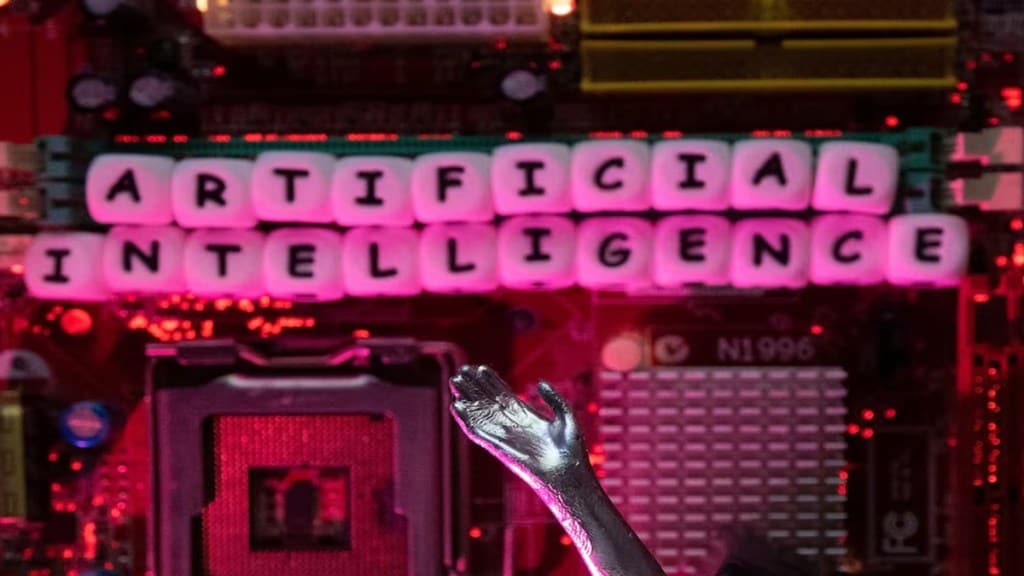By Rameesh Kailasam & Ankur Jain
The emergence and development of artificial intelligence (AI) in healthcare signifies one of the biggest shifts in modern medicine. From early diagnosis and detection to personalised treatment plans, AI is pushing the limits of healthcare and opening up new possibilities which look promising.
However, to quote an oft-used line, “With great power comes an even greater responsibility.” To make sure that innovation does not outpace accountability, especially in a field with as high stakes as healthcare where lives hang in the balance, the promise of transparency, ethics, and trust must anchor every step of the journey. Trust is the bedrock of healthcare, and accountability is how AI should ideally earn it here. Without these, the promise that AI brings risks being overshadowed by doubt, inefficiency, and unintended consequences.
Transparency: The pillar of trust
Picture this: Treatment for a critical illness is delivered by an AI system. Would you accept its judgement without knowing how it reached that conclusion? Transparency is essential for fostering trust in such high-stakes scenarios. A recent Wolters Kluwer survey found that 90% of consumers believe clinicians need to be transparent about their use of AI in healthcare decisions, underscoring the critical role of “explainability” in patient acceptance.
Traceable AI systems ensure that every choice made is explainable, reproducible, and open to scrutiny. This isn’t just about adhering to regulations like the European Union’s (EU) AI Act or FDA guidelines for AI/machine learning in medical devices; it’s about building trust in a technology that is crucial for human health. Without transparency, AI risks turning into a “black box”, which, in healthcare, is not just a technological challenge but also a moral imperative. The survey further noted that nearly four in five consumers are concerned about generative AI being used in medical diagnosis, reflecting the importance of accountability to mitigate errors and ensure ethical AI deployment.
AI as a partner, not replacement
AI lacks intuition, contextual understanding, and the ability to empathise — qualities that are fundamental in healthcare decision-making. According to EY’s 2024 survey, while 96% of healthcare executives acknowledge AI’s potential to improve efficiency, 83% express reservations about its role in tasks like personalising medical plans or assisting in diagnosis. Moreover, 91% stress the importance of human oversight to ensure ethical and effective outcomes.
This underscores the necessity of integrating human supervision at every stage of AI decision-making. AI excels at analysing vast data sets and identifying patterns that are imperceptible to the human eye. However, it must remain a tool and not become an autonomous decision-maker. The healthcare systems of the future will derive their strength from collaboration, where AI enhances human expertise without replacing the compassion and ethical judgement that only humans can provide. In this synergy lies AI’s true potential — as a partner, not a replacement — empowering healthcare systems to deliver care that is efficient, ethical, and personalised.
Safeguarding patient data
Equally, accountability also demands an unwavering focus on data privacy and security. In healthcare, data isn’t just raw information. It’s a deeply personal story of a patient’s health journey, often reflecting their most vulnerable moments. With cyber threats on the rise, safeguarding this data is more than a regulatory checkbox — it’s a moral obligation.
Compliance with global privacy standards like the US’ Health Insurance Portability and Accountability Act, the EU’s General Data Protection Regulation or India’s proposed Digital Private Data Protection Act provide a foundation, ensuring AI systems adhere to strict guidelines for safeguarding sensitive information. But accountability doesn’t stop at compliance. It requires proactive measures such as advanced encryption, strict anonymisation protocols, and governance systems that guarantee patient data is safe and used only to enhance AI-driven care. If we lose the trust, we risk losing the very progress we aim to achieve.
The path forward
As AI continues to redefine the healthcare landscape, its long-term impact depends on how responsibly we build and deploy it. Accountability must be more than an abstract principle — it must be a practice embedded at every stage of the journey, from development to deployment. When transparency, human collaboration, and data privacy form the core of AI systems, the technology can transform healthcare into a trustworthy, smarter, and more compassionate ecosystem.
The “A” in AI will then stand for more than “artificial”; it will stand for “accountability”. In this lies the blueprint for a future where technology serves humanity — not just with intelligence, but with integrity, thereby empowering healthcare systems to deliver results more efficiently.
The writers are respectively CEO, Indiatech.org, and co-founder, Jivi AI.
Disclaimer: Views expressed are personal and do not reflect the official position or policy of FinancialExpress.com. Reproducing this content without permission is prohibited.


